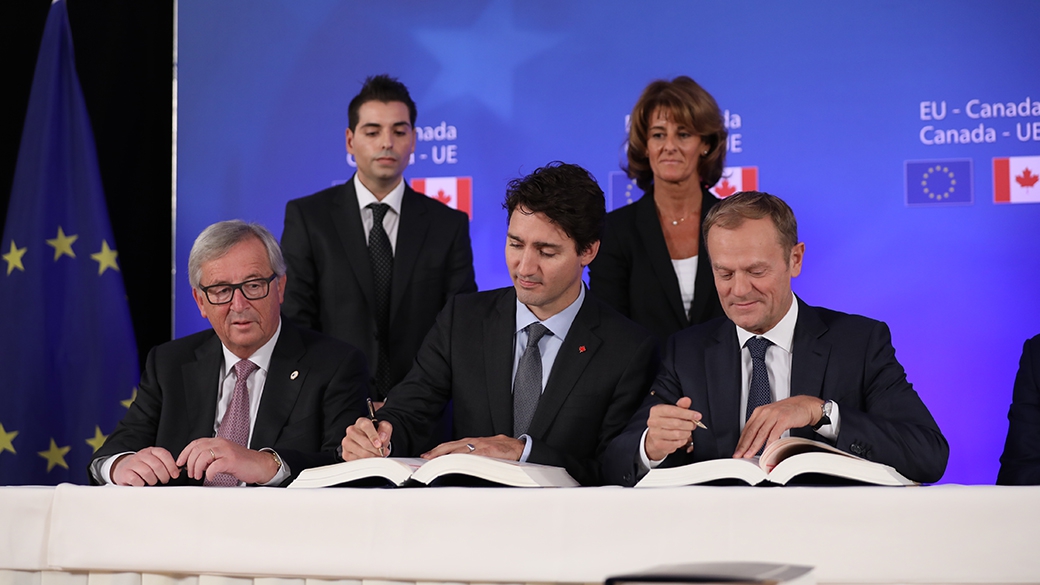On October 30, Prime Minister Justin Trudeau, along with with Donald Tusk, president of the European Council, and Jean-Claude Juncker, president of the European Commission, signed the much anticipated Comprehensive Economic and Trade Agreement (CETA) during the European Union-Canada Leaders’ Summit in Brussels, Belgium.
The Agreement is touted to be a modern, progressive trade agreement that, when implemented, will generate billions of dollars in bilateral trade and investment while preserving shared values such as the environment. However, the implications of boosting growth in Canadian agriculture and agri-food markets could have implications for the health of Canadian watersheds.
Areas of the CETA that affect water resources
Article 1.9
In article 1.9, “Rights and obligations relating to water,” the document states that the “The Parties recognise that water in its natural state, including water in lakes, rivers, reservoirs, aquifers and water basins, is not a good or a product.” This section is intended to eliminate opportunities for bulk water transfers of water. The agreement states that, “Nothing in this Agreement obliges a Party to permit the commercial use of water for any purpose, including its withdrawal, extraction or diversion for export in bulk. are not part of the agreement.”
Chapters 22 (Trade and Sustainable Development)
In this chapter, the agreements includes language around promoting dialogue and cooperation between the Parties with a view to developing their trade and economic relations in a manner that supports their respective labour and environmental protection measures and standards.
Chapter 22 includes measures that focus on transparency, public consultation, eco-labelling. Chapter 22 also outlines objectives for future engagement involving the Committee on Trade and Sustainable Development.
Chapter 24 (Trade and Environment)
States that the signatories recognize the right of each Party to set its environmental priorities, to establish its levels of environmental protection, and to adopt or modify its laws and policies accordingly and in a manner consistent with the multilateral environmental agreements to which it is party and with this Agreement. It also supports domestic approaches to regulatory enforcement, and supports policies and regulations that are based on scientific evidence.
Chapter 24 also recognizes the importance of ecological goods and services: “The Parties are resolved to make efforts to facilitate and promote trade and investment in environmental goods and services, including through addressing the reduction of non-tariff barriers related to these goods and services.”
The leaders also signed the Strategic Partnership Agreement (SPA), which will enhance cooperation in important areas such as energy, environment and climate change, among other things.
The elimination of EU tariffs is predicted to assist advanced manufacturing, agriculture and agri-food, automotive, chemicals and plastics, fish and seafood, forestry and value-added wood products, and metal and mineral sectors.
Prime Minister Justin Trudeau said, “CETA will offer significant benefits for most sectors of the Canadian economy, from fishermen in Newfoundland and Labrador, to aerospace workers in Quebec, and from people assembling automobiles in Ontario, to forest industry workers in British Columbia to miners in the Northwest Territories.”
The EU is the world’s second largest single market and Canada’s second largest bilateral trading partner.
Water Canada examines how CETA may impact the water sector here.













